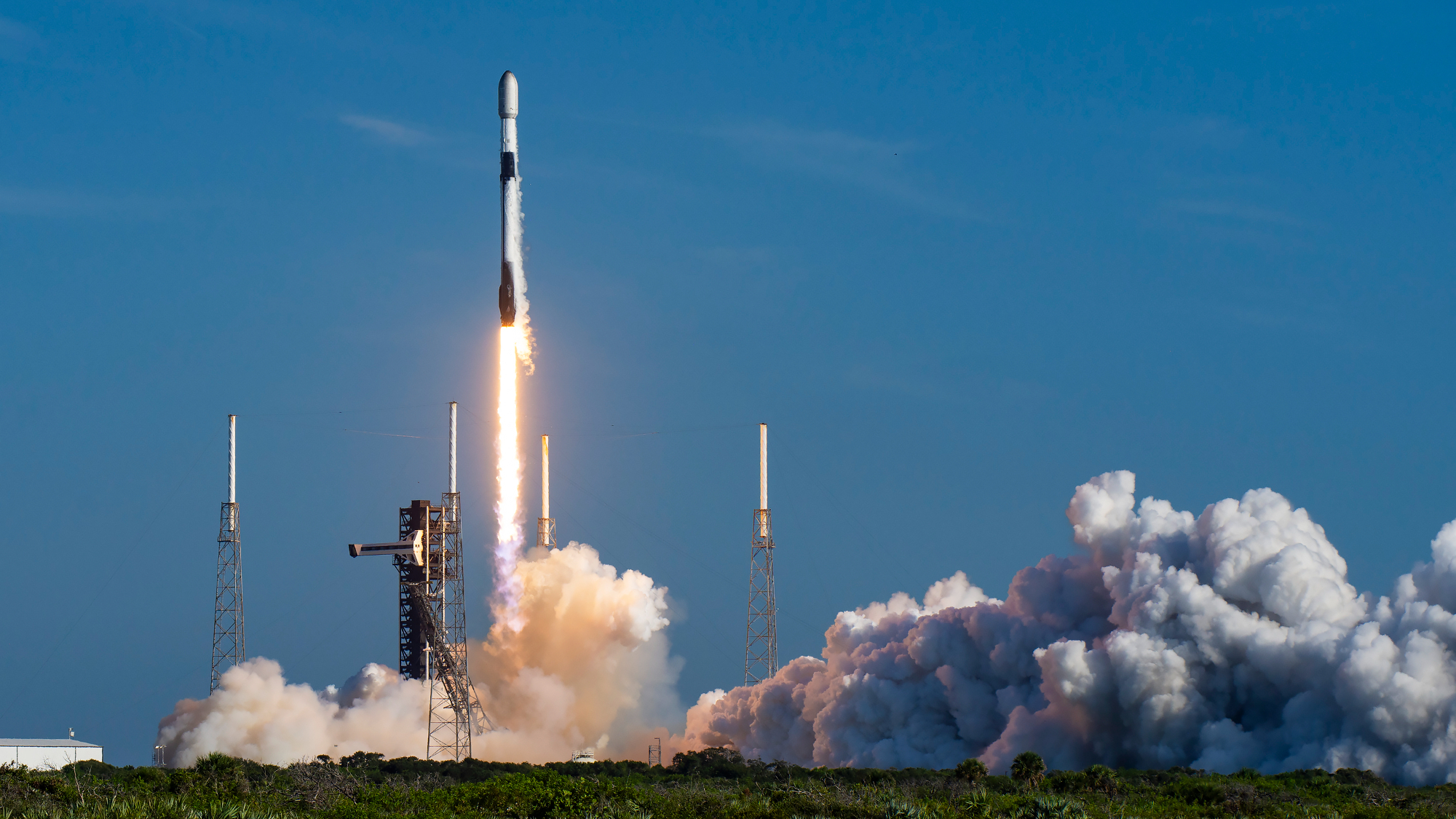SpaceX's Falcon 9 rocket can return to flight, FAA says

Breaking space news, the latest updates on rocket launches, skywatching events and more!
You are now subscribed
Your newsletter sign-up was successful
Want to add more newsletters?

Delivered daily
Daily Newsletter
Breaking space news, the latest updates on rocket launches, skywatching events and more!

Once a month
Watch This Space
Sign up to our monthly entertainment newsletter to keep up with all our coverage of the latest sci-fi and space movies, tv shows, games and books.

Once a week
Night Sky This Week
Discover this week's must-see night sky events, moon phases, and stunning astrophotos. Sign up for our skywatching newsletter and explore the universe with us!

Twice a month
Strange New Words
Space.com's Sci-Fi Reader's Club. Read a sci-fi short story every month and join a virtual community of fellow science fiction fans!
Well, that was quick.
SpaceX can resume flying its workhorse Falcon 9 rocket, the U.S. Federal Aviation Administration (FAA) announced this evening (Aug. 30). The news comes just two days after a Falcon 9 first stage crashed while attempting to land after a successful launch of SpaceX's Starlink broadband satellites, spurring an investigation overseen by the FAA.
That investigation is ongoing, but the agency has un-grounded the Falcon 9 nonetheless.
"The SpaceX Falcon 9 vehicle may return to flight operations while the overall investigation of the anomaly during the Starlink Group 8-6 mission remains open, provided all other license requirements are met," FAA officials said in an emailed statement today. "SpaceX made the return-to-flight request on Aug. 29 and the FAA gave approval on Aug. 30."
Wednesday's (Aug. 28) Starlink launch was a record breaker — the 23rd liftoff for that particular Falcon 9 first stage, one more than any other SpaceX booster.
The rocket hit its landing target — the deck of a SpaceX droneship stationed in the Atlantic Ocean — but could not stay upright. SpaceX's launch livestream showed flames billowing from the booster's base just after touchdown, followed by a topple.
That fall destroyed the rocket: SpaceX watchers recently captured imagery of the droneship with the booster's wreckage strewn about its deck.
Breaking space news, the latest updates on rocket launches, skywatching events and more!
Related: Starlink satellite train: how to see and track it in the night sky
The landing-failure investigation is the second FAA Falcon 9 inquiry in the past month and a half. The rocket returned to flight on July 26 after a two-week hiatus caused by an upper-stage failure that resulted in the loss of 23 Starlink satellites.
The clearance to fly doubtless comes as a relief for the crew of Polaris Dawn, a four-person orbital mission that will feature the first-ever private spacewalk. Polaris Dawn had been scheduled to launch early this week, before Wednesday's incident, but bad weather forecasts pushed the liftoff back. SpaceX has not yet announced a new target launch date for the historic five-day mission.

Michael Wall is a Senior Space Writer with Space.com and joined the team in 2010. He primarily covers exoplanets, spaceflight and military space, but has been known to dabble in the space art beat. His book about the search for alien life, "Out There," was published on Nov. 13, 2018. Before becoming a science writer, Michael worked as a herpetologist and wildlife biologist. He has a Ph.D. in evolutionary biology from the University of Sydney, Australia, a bachelor's degree from the University of Arizona, and a graduate certificate in science writing from the University of California, Santa Cruz. To find out what his latest project is, you can follow Michael on Twitter.
